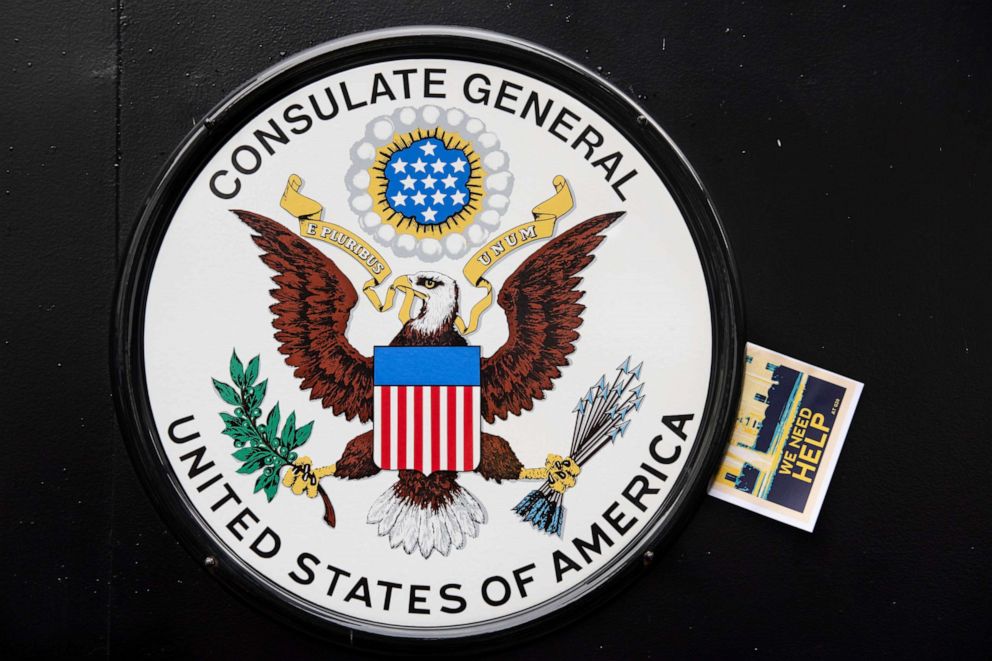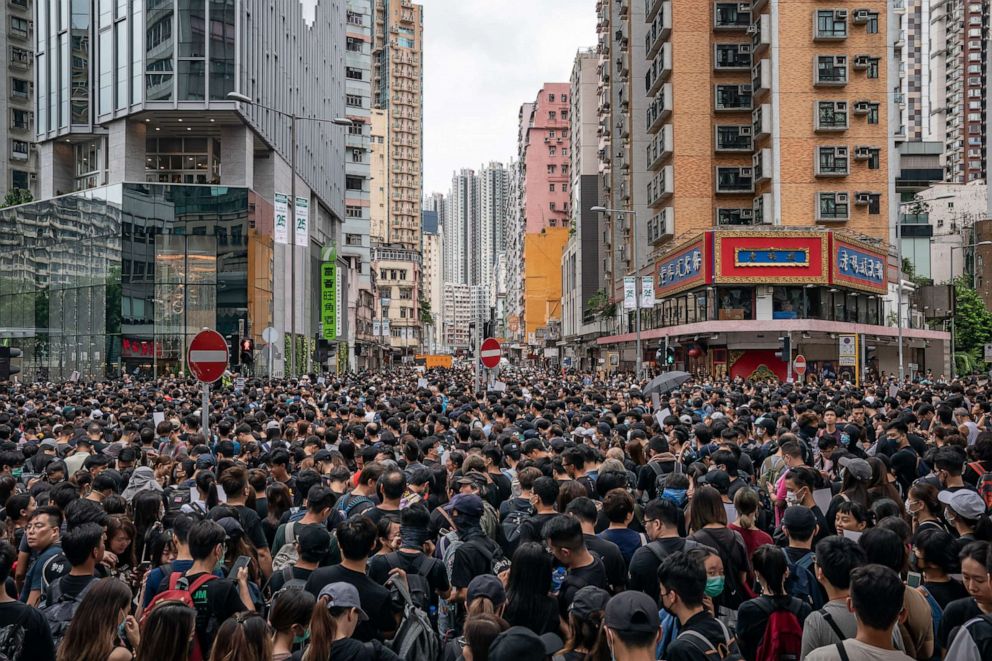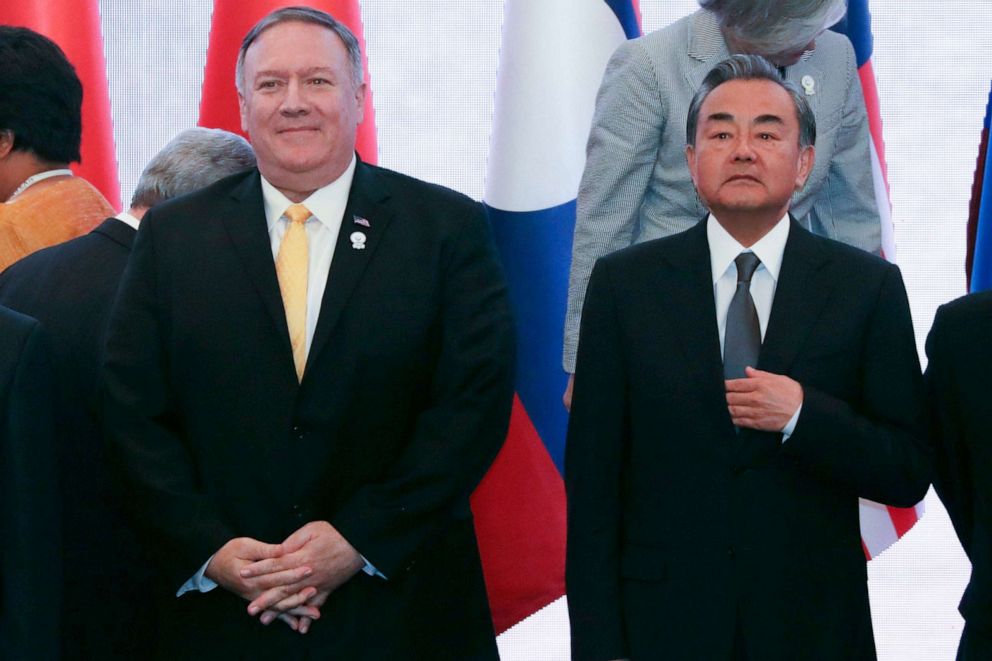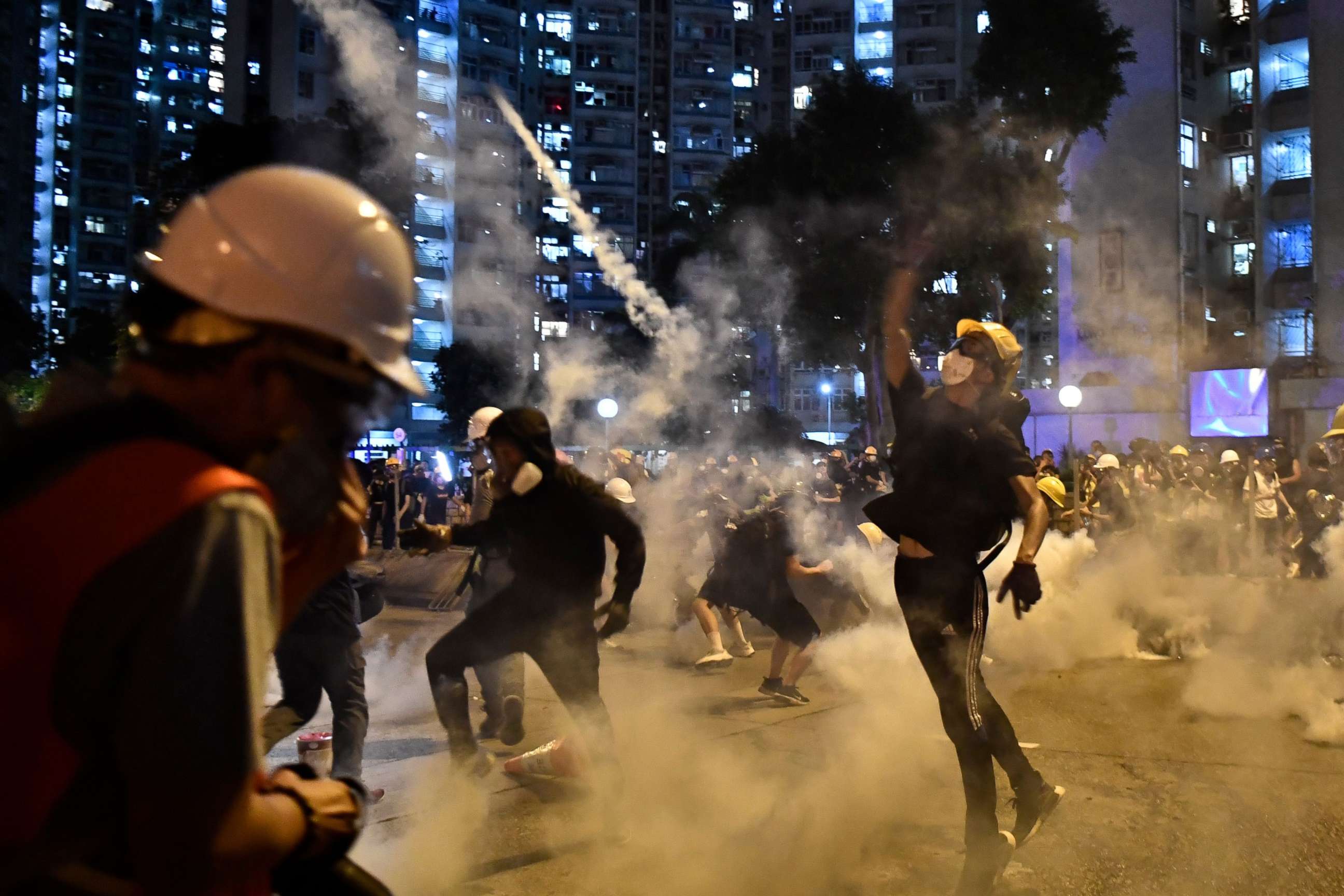US calls China 'thuggish regime' after Beijing protests diplomat's opposition meeting
The fight is another sign of growing tension between the two countries.
The U.S. accused China of behaving like a "thuggish regime" in a growing spat over the protests in Hong Kong that have seized the territory for weeks now.
China has accused Western countries and the U.S. in particular of orchestrating the movement, which protesters deny. But those allegations were fueled by a meeting between a senior U.S. diplomat and some pro-democracy activists.
A pro-Beijing newspaper published a report on Thursday, including photos and details, about Julie Eadeh, the political unit chief of the U.S. consulate general in Hong Kong, meeting with Joshua Wong, one of the protest movement's leaders, and others. The article also included details about Julie Eadeh's personal life, such as her various postings as a diplomat and her husband, a fellow U.S. diplomat, and their two sons.

After the report was published, the Chinese Foreign Ministry's commissioner for Hong Kong blasted the U.S. for the meeting and called on Washington "to immediately make a clean break from anti-China forces who stir up trouble in Hong Kong," "refrain from meddling with Hong Kong affairs, and avoid going further down the wrong path."
China also issued a formal protest to the U.S. by summoning a senior official, according to the commissioner's office.
The State Department confirmed that its diplomat met with activists, but said that U.S. diplomats regularly meet with government officials, opposition figures, business leaders and more.

"This literally happens in every single country in which an American embassy is present, so our diplomat was doing her job and we commend her for her work," said spokesperson Morgan Ortagus.
Ortagus then turned the tables on Beijing and accused the government of leaking the details and photos of the meeting in order to "harass" Eadeh.
"I don't think that leaking an American diplomat's private information, pictures, names of their children -- I don't think that that is a formal protest. That is what a thuggish regime would do. That's not how a responsible would behave," she said.

Since June, protests have rocked the territory -- which is formally part of China but is governed by a special Beijing-selected council -- over a controversial bill that would have allowed accused criminals to be extradited to mainland China. That sparked concern over potential human rights abuses and unearthed a deep-seated distrust for many in Hong Kong. While Hong Kong authorities eventually suspended the bill, protesters continue to demand an investigation into police abuses during demonstrations, a total withdrawal of the extradition bill and greater democratic rights for Hong Kong's residents.
The early, peaceful protest marches in June, which attracted record numbers of Hong Kongers to the streets, have become smaller. But sizable battles between masked and hard hat-fitted protesters and police continue.
Hong Kong's embattled and deeply unpopular leader, Carrie Lam, appeared in public for the first time in two weeks on Monday, condemning the protesters and saying that they had pushed the territory "to the verge of a very dangerous situation."

Last Friday, on the sidelines of a major Asian summit in Thailand, Secretary of State Mike Pompeo met with Chinese Foreign Minister Wang Yi, who on the subject of Hong Kong, "urged the U.S. side to respect the Chinese side's core interests and major concerns, and be prudent in words and deeds," according to the Chinese Foreign Ministry.
The U.S. readout made no mention of Hong Kong.
But Pompeo has issued strong statements before, calling a senior Chinese official's comments that the West was behind some protests "ludicrous."
"These are the people of Hong Kong asking their government to listen to them, so it's always appropriate for every government to listen to their people," Pompeo told reporters while en route to Thailand.
ABC News's Karson Yiu contributed to this report from Hong Kong.




